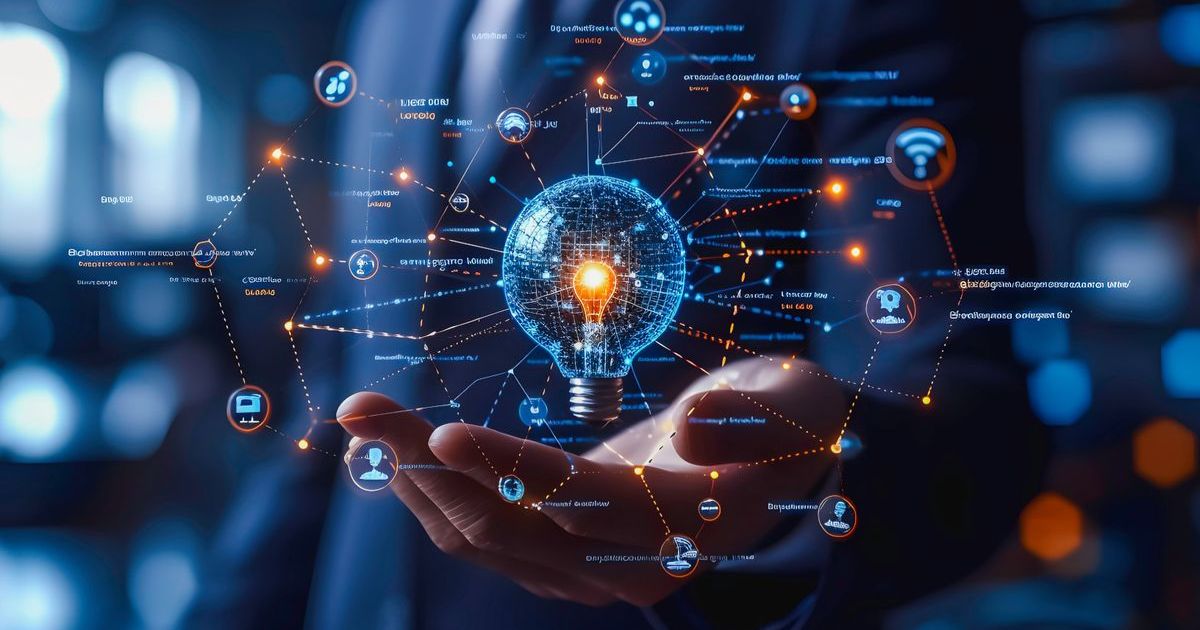Introduction: Why Major Trends Matter
When we speak of major trends in technology togtechify, we’re referring to direction‑setting innovations that influence how we design, build, and live with technology. These are not passing fads; they reflect shifts in infrastructure, human-machine interaction, governance, and capacity. For example, AI was once a niche area but now underpins how many user interfaces, predictions, and automation happen.
Understanding these trends helps you anticipate future demands, align your skillset or product roadmap, and avoid being left behind. Therefore, in this comprehensive guide, we will examine each key trend in depth, assess benefits and challenges, compare alternative approaches, and offer practical advice for adoption.
Table of Contents
What Are “Major Trends in Technology Togtechify”?
Defining the Phrase
By combining “major trends in technology” with “togtechify” (a coined brand or concept), the phrase major trends in technology togtechify refers to the most pivotal, high‑impact technological currents that the Togtechify community, platform, or audience must watch. Think of it as a curated lens on innovation, specific to a context (business, region, domain).
Thus, when you read major trends in technology togtechify, you’re seeing a selection of technologies that not only are globally influential but also especially relevant or adapted for the Togtechify ecosystem.
Criteria for Selecting Trends
To be considered among the major trends in technology togtechify, a technology must:
- Offer disruptive potential or wide reach
- Be at a stage of realistic deployment (not pure speculation)
- Affect multiple sectors
- Require strategic response from stakeholders
- Have measurable impact (investment, adoption, research)
With these criteria in mind, let’s explore the top trends.
Top Major Trends in Technology Togtechify
We detail and analyze these trends:
Artificial Intelligence & Machine Learning (AI / ML)
What’s Driving It
AI and ML continue to evolve, driven by better algorithms, more compute power, and larger datasets. In the context of major trends in technology togtechify, AI is central to automating tasks, enabling decision support, personalization, and predictive systems.
Use Cases & Impact
- Predictive maintenance in manufacturing
- Adaptive learning systems in education
- Smart assistants and conversational agents
- Fraud detection and risk scoring
- Generative design and content creation
Considerations & Challenges
- Bias, fairness, interpretability
- Data quality, privacy, and governance
- Model drift and maintenance
- Infrastructure cost and scalability
Edge Computing & Fog Computing
Why Edge Matters
Centralizing all computation in the cloud creates latency, bandwidth, and scalability limitations. major trends in technology togtechify include pushing compute closer to the data source via edge or fog computing.
Use Cases
- Real‑time analytics at IoT devices
- Autonomous vehicles and drones
- Local anomaly detection in industrial systems
- AR/VR rendering close to users
Trade-offs
- Infrastructure heterogeneity
- Management complexity
- Security at edge nodes
- Data consistency across tiers
5G, 6G & Next‑Gen Connectivity
Connectivity is the backbone of almost all the other trends. In major trends in technology togtechify, next-gen networks such as 5G and future 6G matter because they unlock low latency, high throughput, and seamless device connectivity.
Don’t stop here—take a look at what else we’ve got for you!
Applications Enabled
- Massive IoT (smart cities)
- Remote surgery / telemedicine
- Augmented reality streaming
- Autonomous systems coordination
Risks & Constraints
- Spectrum licensing, infrastructure cost
- Energy consumption
- Coverage gaps in rural areas
- Security in connected networks
Blockchain, Web3 & Decentralized Technologies
The Promise
In the major trends in technology togtechify domain, blockchain and Web3 offer decentralized trust, transparency, and new economic models.
Use Cases
- Decentralized finance (DeFi)
- Non‑fungible tokens (NFTs) for digital ownership
- Supply chain provenance
- Decentralized identity
Challenges
- Scalability (throughput, latency)
- Energy consumption (in some consensus models)
- Regulatory uncertainty
- Usability and adoption
Augmented Reality (AR) & Virtual Reality (VR) / Mixed Reality
Why AR/VR Matters
These interfaces reshape human‑machine interaction. In major trends in technology togtechify, immersive experiences merge physical and digital worlds.
Use Cases
- Virtual training, simulations
- Remote collaboration and meetings
- AR navigation or overlays
- Gamification of work and learning
Hurdles
- Hardware cost and form factor
- Motion sickness, user comfort
- Content creation and standards
- Network and compute demands
Sustainability, Green Tech & Climate Tech
The Imperative
Technology cannot exist in isolation from environmental responsibility. Among major trends in technology togtechify, green tech, energy efficiency, carbon tracking, and circular economy solutions are essential.
Trends & Tools
- Renewable energy integration in data centers
- Energy-efficient computing (low-power chips)
- Carbon accounting platforms
- Smart grids and demand-response systems
Challenges
- Trade-offs in performance vs energy
- Capital investment
- Policy and regulatory alignment
- Lifecycle and e-waste considerations
Quantum Computing & Quantum Technologies
Why Quantum
Quantum technologies represent the frontier. Though partly experimental, they remain one of the major trends in technology togtechify that could disrupt cryptography, simulation, optimization, and material science.
Use Cases
- Drug discovery simulations
- Optimization in logistics
- Quantum-safe cryptography
- Quantum sensing for advanced measurement
Barriers
- Error rates and decoherence
- Hardware fragility
- Cost and accessibility
- Algorithmic maturity
Comparison Table: Key Trends Side by Side
Here is a comparison of selected major trends in technology togtechify, across key criteria:
| Feature / Criterion | AI / ML | Edge Computing / Fog | 5G & Next-Gen Connectivity | Blockchain / Web3 | AR / VR / Mixed Reality | Quantum Technologies |
|---|---|---|---|---|---|---|
| Maturity / Deployment Stage | High (widely deployed) | Growing, emerging use | Deployed (5G) / experimental (6G) | Emerging, selective use | Growing (especially AR) | Early / prototyping phase |
| Latency Sensitivity | Moderate (depends on use) | Very high (real-time) | Very high (critical) | Moderate (depends on chain) | Very high (immersive UX) | Very high (quantum cycles) |
| Compute / Infrastructure Demand | High (training models) | Medium to high (distributed) | High (dense deployment) | Medium (blockchain nodes) | High (graphics, rendering) | Very high (quantum hardware) |
| Scalability & Performance | Scales with data & compute | Scales via distributed nodes | Requires dense infrastructure | Performance limited by consensus | Scales with client/server capacity | Scalability still a challenge |
| Energy & Efficiency | Power-hungry training stages | Efficient via local filtering | High power usage in towers | Depends on consensus model | GPU/AR hardware energy demands | Requires cooling and stability |
| Security / Trust Considerations | Data privacy, model robustness | Edge node trust, isolation | Network security, slicing | Cryptographic security, consensus | Data integrity, user privacy | Cryptographic disruption risk |
| Adoption Barriers | Data, bias, interpretability | Heterogeneity, management | Infrastructure cost, coverage | Regulatory & scalability hurdles | Hardware cost, user adoption | Hardware fragility, cost |
| Relevance to Togtechify Ecosystem | Core enabler of smart systems | Critical for IoT/real-time use | Backbone for connectivity | Trust, economics, identity layers | Next-gen user interfaces | Future-proof foundation |
This table helps you see trade-offs and which trend might be more relevant for your domain in major trends in technology togtechify.
Interdependencies & Synergies Among Trends
One of the most important aspects of major trends in technology togtechify is that they don’t operate in isolation. They often reinforce each other. Consider:
- AR/VR demands high bandwidth and low latency—so next-gen connectivity (5G+) and edge computing are essential foundations.
- AI models benefit from distributed compute and edge inference (offloading parts of the model locally).
- Blockchain identity or decentralized systems merge with edge architectures for trust at local nodes.
- Green tech pressures influence choices in AI efficiency, data center design, and connectivity protocols.
- Quantum-safe cryptography loops back to blockchain and network security.
Recognizing how these trends interplay helps you design coherent strategies rather than siloed efforts.
Expand your knowledge and check out more posts on our blog!
How to Prepare & Adapt for Major Trends in Technology Togtechify
Strategic Planning & Roadmapping
- Technology audit: assess where your current systems stand relative to the trends.
- Prioritize trends: not all trends are equal in your context; pick those with highest impact.
- Skill investment: train teams in AI, edge architecture, blockchain, etc.
- Pilot projects: run small experiments (PoC) before full adoption.
- Partner ecosystems: align with technology providers, vendors, or research groups.
Architectural Best Practices
- Use modular, extensible designs
- Favor API-first and microservices
- Plan for backward compatibility
- Adopt cloud-native and hybrid strategies
- Instrument everything with telemetry
Governance & Ethics
Because many trends touch privacy, equity, and societal impact, you should:
- Create AI and data ethics oversight
- Define privacy, consent, and transparency policies
- Audit bias and fairness in models
- Align with regulation (e.g. GDPR, CCPA, local laws)
Investment & Funding
Allocate resources for:
- Infrastructure upgrades (compute, network)
- R&D and prototyping
- Talent recruitment
- Security and compliance
- Maintenance and iteration
Monitoring & Adaptation
- Use metrics (adoption rate, ROI, usage)
- Apply feedback loops
- Be ready to pivot if a trend underperforms
Thus, preparing systematically ensures that you don’t just react to major trends in technology togtechify, but lead them.
Conclusion
major trends in technology togtechify are not just buzzwords—they represent a roadmap of innovation that will define how systems, businesses, and societies evolve. From AI and edge computing to blockchain, immersive reality, green tech, and quantum advances, each trend offers unique opportunities and challenges.
By placing major trends in technology togtechify at the start of this conclusion, we reaffirm the central concept: that these trends are the strategic levers shaping tech’s future. Success lies in not chasing every trend, but thoughtfully integrating those most relevant to your mission, building ethical and resilient systems, and iterating with foresight.
Stay curious, experiment, and align your roadmap with the forces reshaping the digital frontier.
FAQs
What is the difference between edge computing and cloud computing?
Edge computing processes data closer to where it’s generated (devices, sensors), reducing latency and bandwidth usage, whereas cloud computing centralizes processing in distant data centers.
Can blockchain work without cryptocurrency?
Yes. Blockchain is a general-purpose trust and ledger technology. Use cases include identity, supply chain, records—cryptocurrency is just one implementation.
How mature is quantum computing today?
Quantum computing is still in a developmental stage; some experimental use cases exist, but widespread, fault-tolerant deployment remains years away.
How can small teams adopt AI without huge budgets?
Use managed AI/ML services, open-source models, transfer learning, and cloud platforms with pay-as-you-go models to reduce up-front cost.
What’s the role of sustainability in technology trends?
Sustainability pushes design toward energy efficiency, carbon tracking, green infrastructure, and long-term environmental accountability.
How often should a company revisit its trend strategy?
At least yearly, with quarterly check-ins. That way you catch emerging shifts, adjust investment, and stay aligned with market changes.












